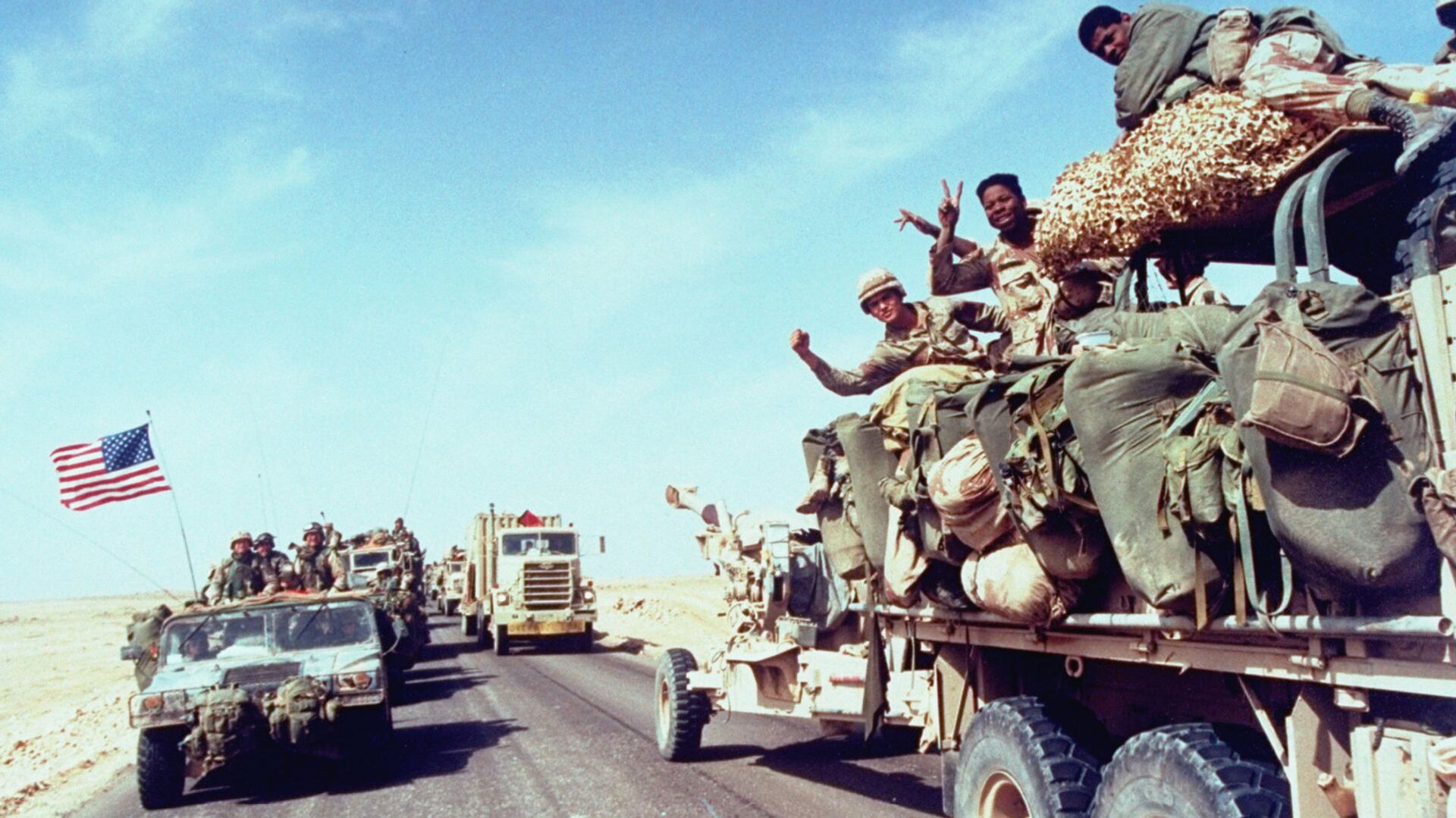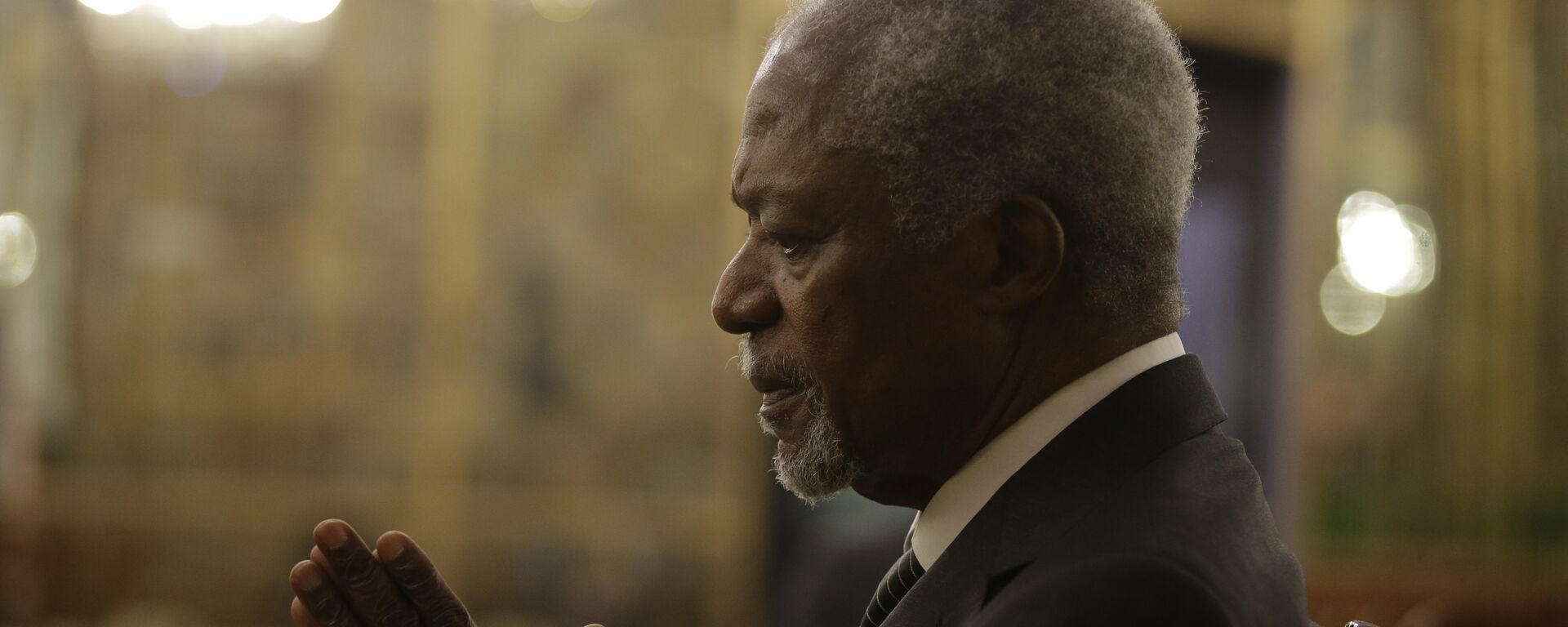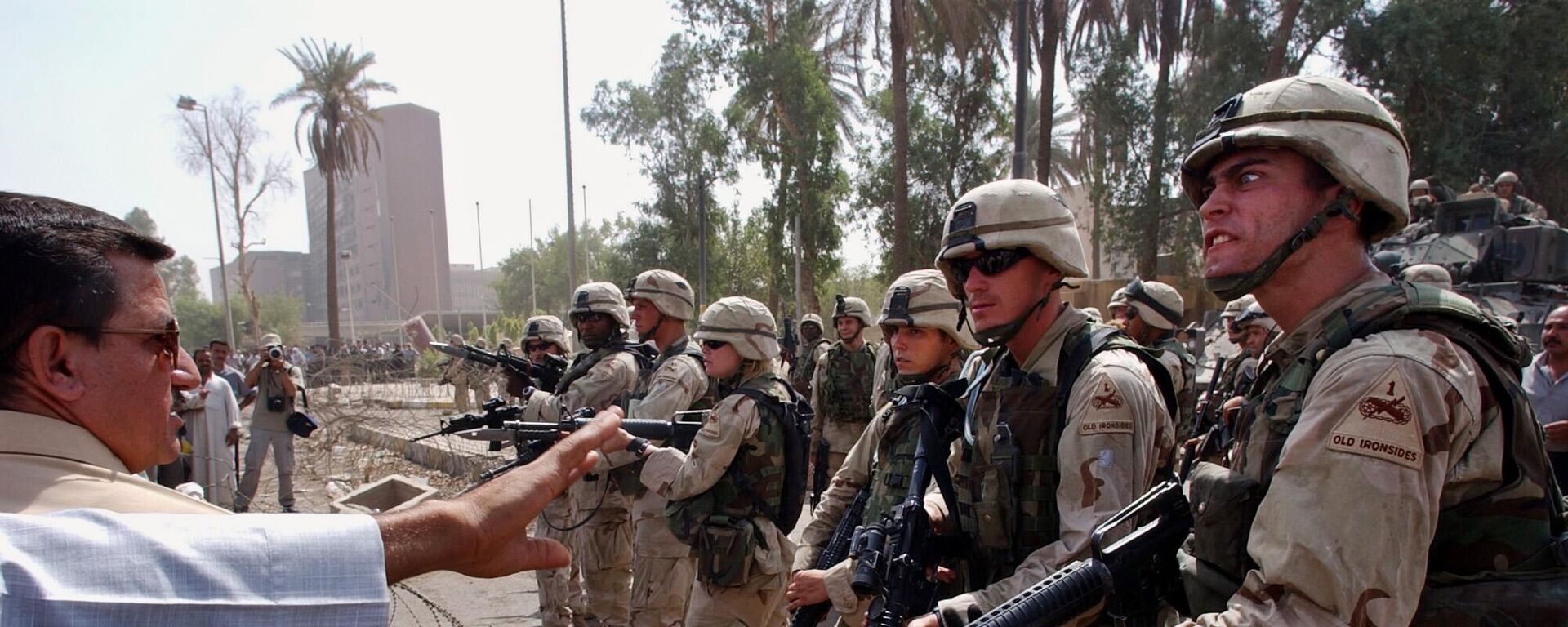Bipartisan US Senate Group Says It's Able to End Force Authorizations Behind 1991, 2003 Iraq Wars
16:53 GMT 02.03.2023 (Updated: 09:46 GMT 18.03.2023)

Subscribe
US Senate Majority Leader Chuck Schumer (D-NY) said on Wednesday that the upper chamber could soon consider ending the authorizations for use of military force (AUMFs) used to launch the US attacks on Iraq in 1991 and 2003.
"We need to put the Iraq War squarely behind us once and for all, and doing that means we should extinguish the legal authority that initiated the war to begin with," Schumer told reporters.
“Every year we keep this authorization to use military force on the books is another chance for a future president to abuse or misuse it. War powers belong squarely in the hands of Congress, and that implies that we have a responsibility to prevent future presidents from hijacking this AUMF to bumble us into a new war,” Schumer said.
According to the US Constitution, the power to declare war and make peace rests with Congress, not the President, and many have argued that open-ended empowerment to order the beginning of a large military operation violates the Constitution’s clearly defined separation of powers.
The first AUMF was passed in January 1991, just days before the all-out attack on Iraq was launched in response to its invasion and annexation of Kuwait the previous August. In the months between, then-President George H.W. Bush had moved 500,000 US troops into Saudi Arabia without congressional authorization and the US had pushed through a United Nations Security Council resolution giving certain nations authorization to use "all necessary means" to force Iraq out of Kuwait if it did not leave by January 15, 1991.
The second AUMF was passed in October 2002 as the administration of President George W. Bush made its case for the overthrowing of Iraqi President Saddam Hussein. US lawmakers argued the US had a right to preemptive self-defense against a chemical weapons program that did not exist. However, the invasion did not begin until March 2003.
A year after the invasion began, the newly-retired UN secretary-general, Kofi Annan, said the attack was an "illegal act that contravened the UN charter."
Even though the two laws clearly dealt with a specific set of historical circumstances, subsequent administrations have looked to them to justify their offensive actions. For example, after then-President Donald Trump ordered the assassination of Iranian Maj. Gen. Qasem Soleimani outside Baghdad in January 2020, he cited as legal justification the pre-emptive self-defense language of the 2002 AUMF.
Two previous efforts to remove the two laws have been made: one in 2019, when the House voted to repeal the 2002 AUMF but the effort stalled in the Senate, and another in 2021, when the House again adopted a resolution to repeal the 2002 AUMF. The Senate version of that bill, which included passages repealing all previous war authorizations and establishing new procedures, failed to pass.
This time, however, Schumer and some Senate Republicans, such as Sen. Todd Young (R-IN), believe they have assembled a supermajority of supporters capable of beating the 60-vote filibuster that the GOP leadership has put in place to block essentially all aspects of the Democratic political agenda of which they disapprove.
The White House has given the effort its blessing, saying in 2021 that removing the 2002 AUMF “would likely have minimal impact on current military operations.”
“The President is committed to working with the Congress to ensure that outdated authorizations for the use of military force are replaced with a narrow and specific framework appropriate to ensure that we can continue to protect Americans from terrorist threats,” the White House said at the time.
A third AUMF remains on the books: the 2001 AUMF, used to authorize the US invasion of Afghanistan in the aftermath of the September 11 terrorist attacks. The law became a cornerstone of US foreign policy for two decades as it launched the War on Terror across three continents, leading critics to call it a blank check for military operations. In addition to Afghanistan, the law has been used to allow military deployment in the Philippines, Georgia, Yemen, Djibouti, Kenya, Ethiopia, Eritrea, Iraq, and Somalia.





